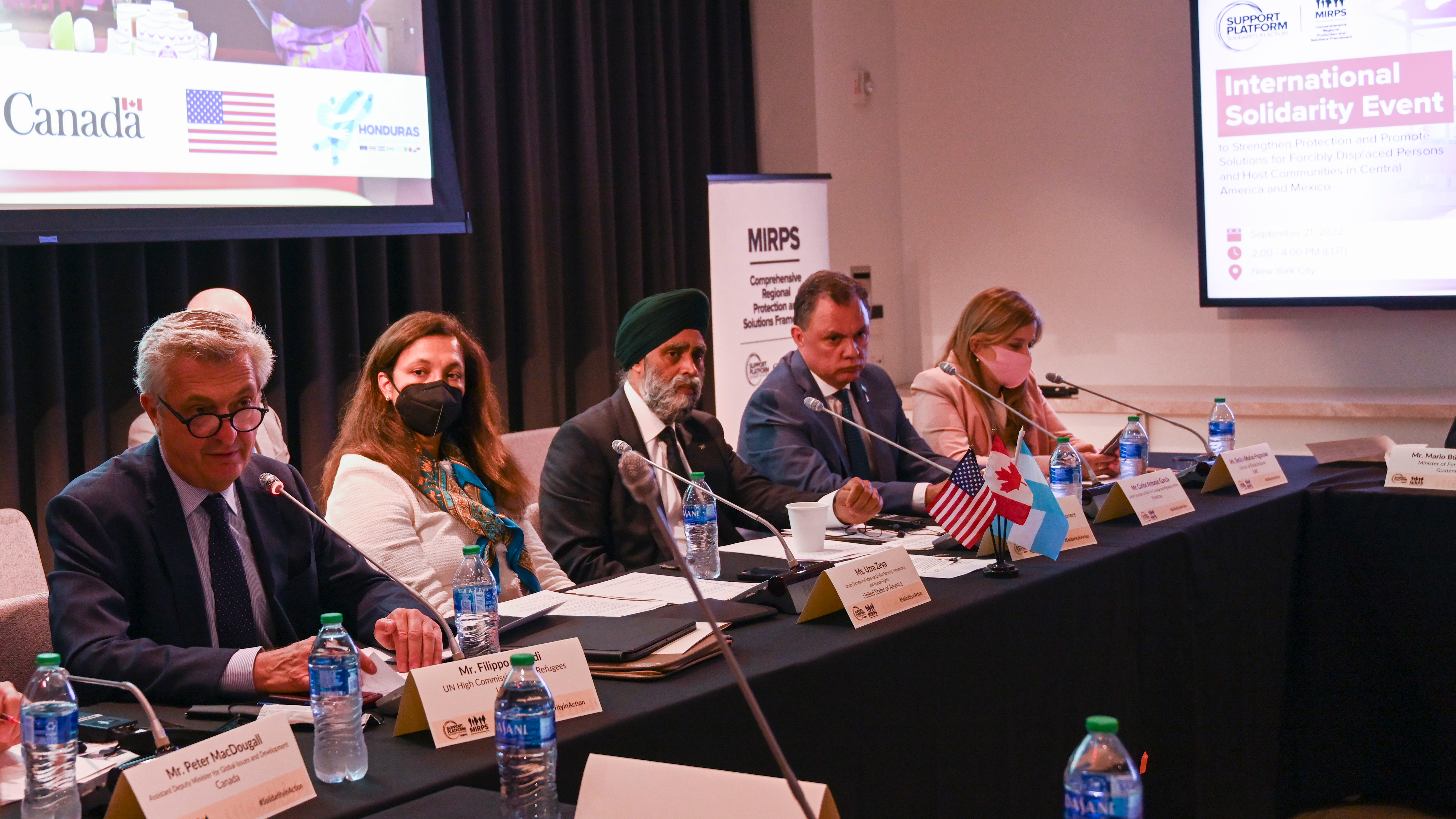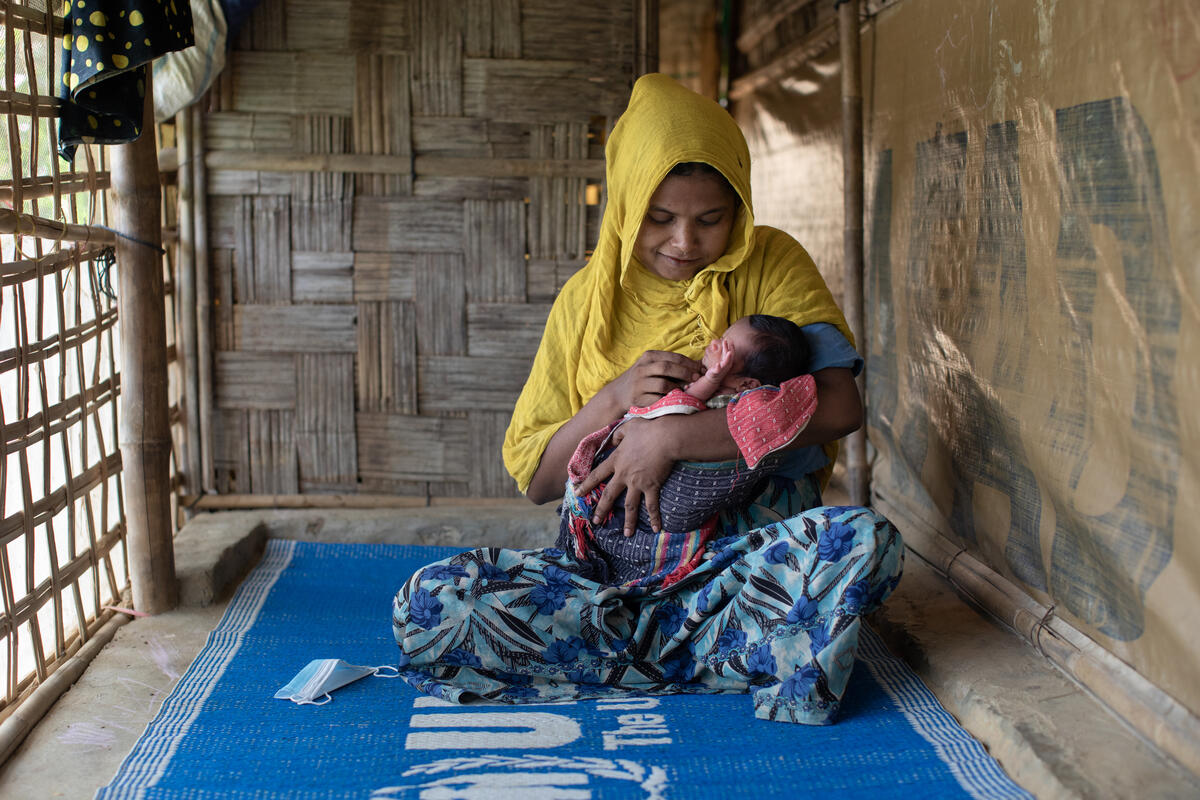UNHCR launches urgent appeal for funds for its 1998 operations
UNHCR launches urgent appeal for funds for its 1998 operations
The United Nations High Commissioner for Refugees has issued an urgent appeal for funds, warning that the organization may not be able to continue caring for the world's refugees if contributions remain scarce and unpredictable. The warning coincided with the publication of a compilation of UNHCR's 1998 programmes.
The document, entitled "1998 Global Appeal," details UNHCR's activities worldwide and is intended to replace the traditional practice of issuing separate appeals for the funding of individual programmes, except in the case of emergencies. From now on, a Global Appeal will be issued each year in December for the next year's programmes, to help donors plan their contributions and to enhance the predictability of UNHCR funding.
Contributions to UNHCR's programmes so far this year comprise only about half of its budget of $1.1 billion.
"UNHCR depends almost entirely on voluntary contributions to finance its activities, but the resources available to us have become increasingly scarce and unpredictable," High Commissioner. Sadako Ogata said. "I realize that donor countries are under pressure to reduce public spending, and I deeply appreciate their continued support. But I am very worried about the effect on refugees if we are forced to continue to cut back our programmes. Predictable funding is essential for our work."
The number of people of concern to UNHCR - refugees, returnees and displaced persons - rose to a record 27 million in 1995. This rise was due to a succession of large-scale refugee movements caused by regional conflicts, such as those in Bosnia and Herzegovina, the Caucasus and the African Great Lakes region, as well a surge in repatriation operations which became possible in the post cold-war period (for instance, in Cambodia, El Salvador, Guatemala and Mozambique).
Today the number of people of concern has gone down to 22 million, reflecting the consolidation of solutions to refugee problems. UNHCR's budget, which peaked at $1.4 billion in 1996, has also been declining, but the organization is still having serious difficulties funding its operations. This shortfall is threatening several key programmes, including repatriation projects in Afghanistan, Angola, Liberia and the Great Lakes region of Africa, as well as UNHCR's ability to respond to unfolding emergencies.
For example, UNHCR lacks funds for the recent dramatic influx of close to 200,000 Sierra Leonean refugees into Guinea and Liberia. It is racing against time to bring food and relief items to the refugees before the onset of the rainy season, when roads will be washed away. It does not have the trucks it needs to ferry traumatized refugees who have fled fighting in eastern Sierra Leone from remote areas along the Guinean frontier to camps inland.
Income projections this year fall short of requirements and as a result, cutbacks in activities are already being implemented. Field offices are reducing their programmes to the most essential operations and related administrative support is being slashed.
There are several explanations for this year's funding crisis:
- Many governments have come under considerable pressure to reduce public spending, and this affects their contributions to intergovernmental and non-governmental agencies. With the increased number of actors on the humanitarian stage, resources are necessarily more thinly spread.
- In the past, contributions were always sufficient to enable UNHCR to bring forward enough money from one year to start the next year's operations. This year's carryover was the lowest since 1989. At the same time, some governments are unable to make contributions early in the year, often due to national budget processes. Coupled with the low carry-over of funds from 1997, this delay is having a critical impact on UNHCR activities.
- Funding is uneven. Many contributions are earmarked by donors for specific activities. For UNHCR this means less flexibility in managing already scarce resources and results in some programmes remaining dramatically underfunded.








